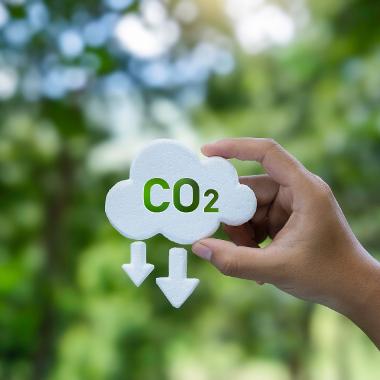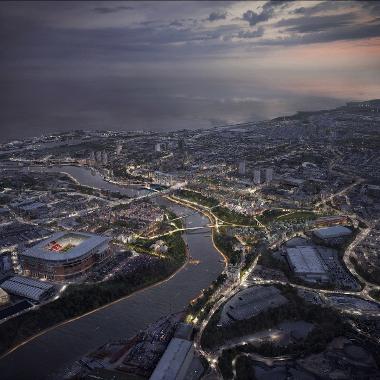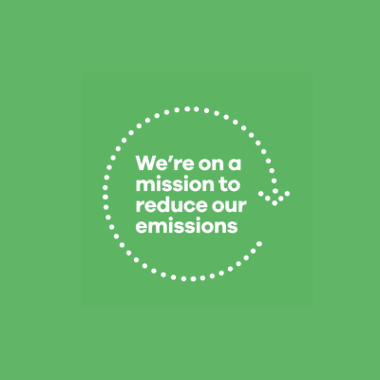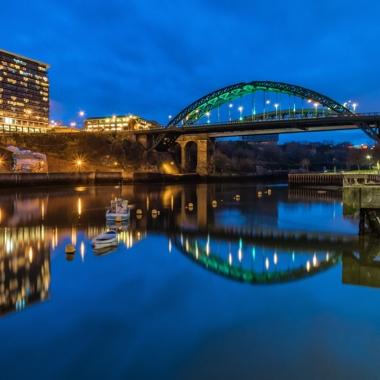Low Carbon: Green Business Toolkit
Sunderland is committed to playing its part in tackling the global climate change emergency.
Our objective: Grow the city's green economy and engage with businesses to work towards Sunderland being a carbon neutral city by 2040 and to achieve net-zero greenhouse gas emissions by 2045.
Climate change remains the challenge of our generation. Governments from all around the World acknowledge this and that urgent change is required.
We are calling on you, as people who live, work and invest in Sunderland, to join with us on this exciting time of transformation.
This toolkit aims to make being 'greener' simple, so you can get started with reducing your impact on the environment, saving money and future-proofing your operations.
This toolkit is suitable for businesses of any sector or size, whether you're starting out, checking your progress, or looking to make fundamental changes to the way you work.
What does it mean to 'go green'?
There's a lot of jargon around to describe what it means to 'go green' or be more 'sustainable'. It's all about how you can play your part in reducing the impact you make on the environment, through exploring all the aspects of how you run and conduct your business.
Going 'green' can create opportunities to:
- Reduce your energy bills.
- Help you save money by reducing wasted stock or materials.
- Ensure you are ahead of new legislation, avoiding additional taxes or fines.
- Give you a competitive advantage in a crowded marketplace.
- Open new markets and offer new opportunities for branding and promotion.
Are you a Sunderland based business?
Every business, regardless of size or sector, can be Greener by reducing its emissions and being more sustainable. It can offer real opportunities to grow your business.
Free, no commitments or pledges.
By joining the Sunderland Green Network, you will then have access to the following opportunities:
- Detailed checklist: 8 steps to a Greener Business
- Connect to networks of businesses by sector or location that can support each other on their journey
Tailored support from the Low Carbon Team on your journey
More support will become available in relation to funding opportunities, digital resources and training sessions.
FAQ's
What does it mean to 'go green'?
There's a lot of jargon around to describe what it means to 'go green' or be more 'sustainable'. It's all about how you can play your part in reducing the impact you make on the environment, through exploring all the aspects of how you run and conduct your business.
Whether you are home based, trade from a shop, office or unit base, there are many ways you can help to do your bit for Sunderland and the planet, as well as improve your profitability, increase your customer base and brand perception.
What does 'Ambition to become Carbon Neutral by 2040' mean?
It's the state achieved when an organisation only calculates its carbon dioxide emissions and compensates for them by removing an equal amount of carbon from the atmosphere, often by carbon offsetting.
What does 'achieve net-zero greenhouse gas emissions by 2045' mean?
This isn't the same as Carbon Neutral, Net Zero includes carbon dioxide and all other greenhouse gases. It's a balance where the amount of greenhouse gas emissions put into the atmosphere is equal to, or less than, the amount of greenhouse gas emissions removed from the atmosphere.
Sunderland established a framework for what needs to happen to achieve this, including the essential role of businesses. Link: Working together - MySunderland
What are Greenhouse Gases?
Greenhouse gases absorb heat and trap it in the Earth's atmosphere, creating a greenhouse effect, therefore warming the Earth. Carbon dioxide is perhaps the most well-known greenhouse gas, but this group also includes methane, nitrous oxide and water vapour.
What is a 'Green Action Plan?'
If your customers are not already asking you how you are becoming greener, they soon will. A Green Action Plan will set out how you plan to become greener across your business. So, plan for what you can achieve, acknowledge that some areas will be challenging and then revise your plan once you have delivered some changes. Resources exist to support you in planning
How to start delivering?
An easy place to start is by measuring your carbon emissions and where they come from, so that you can target your action and measure your progress - many are already doing this. An alternative is to start delivering on the easy wins like switching to a renewable energy supplier, installing better insulation, LED lighting or putting solar photovoltaic (PV) panels on your roof.
How can I share my climate action story?
No matter how much your business has done so far, your journey in carbon reduction will help inspire others. Publicise your ambition on your website and social media channels. Publicly publish your plan as to what you intend to do and tell customers your story. When you deliver changes that reduce emissions, get good pictures and video and share them across your channels using the hashtag: #wearsustainable.
More 'green' terms explained...
Carbon footprint: The amount of carbon dioxide released into the atmosphere as a result of the activities of a particular individual, organisation, or community.
Carbon offsetting: This is when organisations offset their carbon dioxide emissions by reducing emissions elsewhere - for example, by investing in carbon reduction initiatives.
Climate change: is a change in the state of the climate that persists over a long period of time, usually a decade or more. These changes can be caused by natural forces, such as volcanoes. However, since the 1800s human activities such as burning fossil fuels have been the main driver of climate change.
Circular economy: A model of production and consumption which prioritises keeping resources in use for as long as possible, reducing waste and extending the life cycle of materials through recycling, reuse and repair.
Global Warming: is the warming of the planet's overall temperature over a long period of time. Although the earth has been warming for a long time, the pace of this warming has increased rapidly due to the burning of fossil fuels. It is important to note here that this does not mean the same thing as climate change.
Green economy: A low carbon, resource efficient and socially inclusive economy
Greenwashing: When an organisation makes misleading claims about its green credentials, claiming to be more environmentally friendly than it actually is.
Just transition: The idea that a transition to a green economy should be fair to everyone.
Renewable energy: Energy from a source which is not depleted as it is used. Examples include solar power, wind power and tidal power.
Scope 1: Greenhouse Gas (GHG) emissions directly from operations that are owned or controlled by the reporting company.
Scope 2: indirect GHG emissions from the generation of purchased or acquired electricity, steam, heating, or cooling consumed by the reporting company.
Scope 3: all indirect emissions (not included in scope 2) that occur in the value chain of the reporting company, including both upstream and downstream emissions.
Conclusion
Many in Sunderland have taken steps to become greener and if you are one of them, then please start planning and sharing your next steps with us at: lowcarbon@sunderland.gov.uk
We want to share your journey and inspire other's to take action, use the hashtag: #wearsustainable










